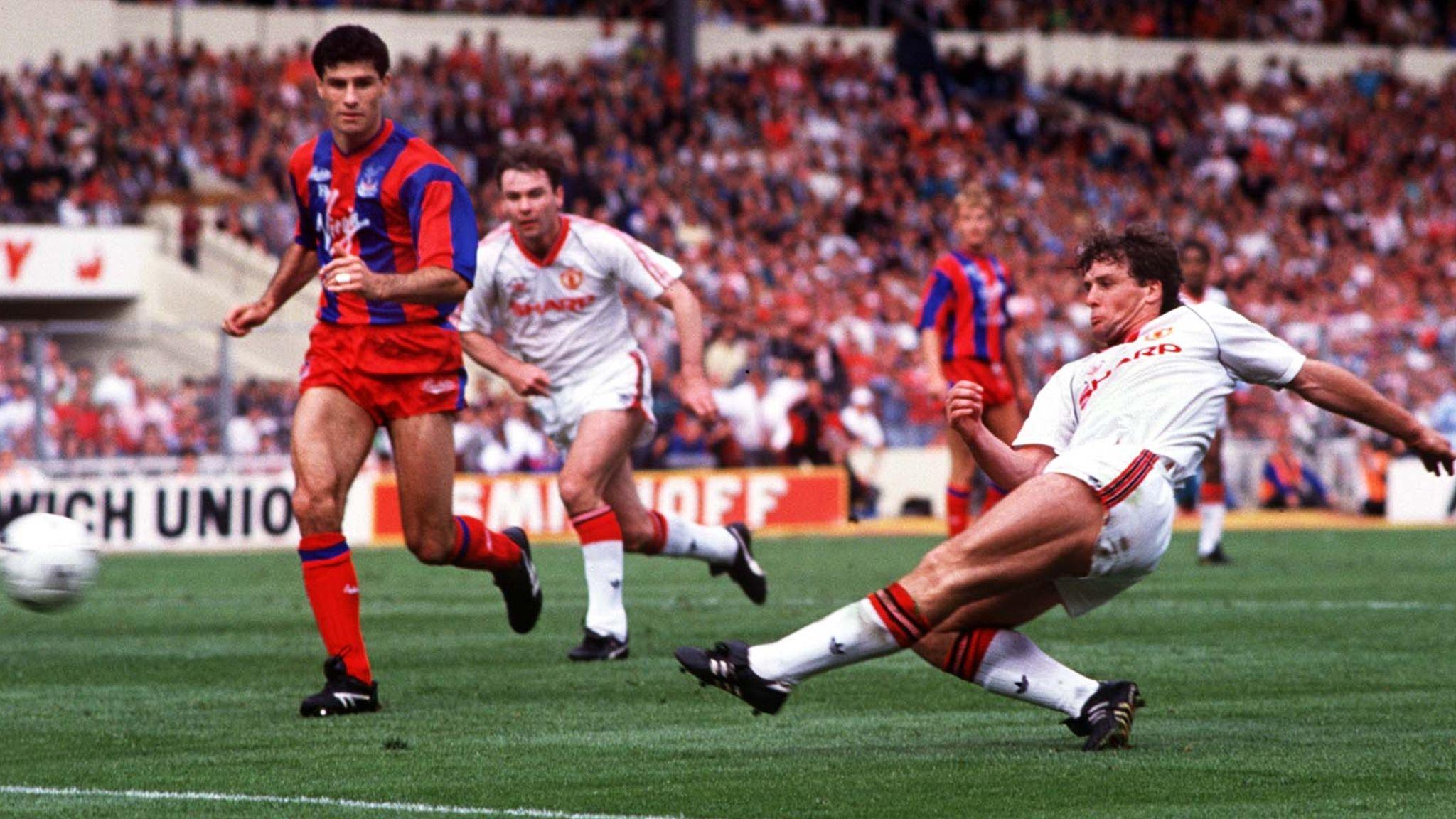He is considered one of the toughest and most talented players to have worn the red of Manchester United and Wales.
And yet Mark Hughes has opened up on how he was almost broken by a move to Barcelona he never wanted.
The revelations come in a new BBC Sport Wales Legends of Welsh Sport documentary that charts the career of one of Old Trafford’s most iconic stars.
Hughes was a player, known to many as ‘Sparky’, who helped usher in an era of unprecedented success under Sir Alex Ferguson and became a hero to millions.
That included a young David Beckham, who joins forces with Ferguson to pay tribute to a player known for his tenacity, tree-trunk thighs and thundering volleys.
“There are certain players that played for United over the years that set the tone of the club,” says Beckham in the first episode of the new series of Legends of Welsh Sport. “That is why Mark is part of Manchester United history.”
That history includes playing a vital part in saving Ferguson’s job and setting up the most successful run of silverware in English football.
But that came after Hughes was first saved by Ferguson from a torrid time in Barcelona, a world away from the comfort of the north Wales village of Ruabon where he still says he is most at home.

Mark Hughes won two Cup Winners’ Cups, two Premier Leagues and four FA Cups – scoring twice in the 1990 final (above) against Crystal Palace
Signed by United as a shy 14-year-old schoolboy, Hughes was thrust into the spotlight with goals on his debut and PFA awards within a year of his breakthrough.
Yet a stand-off over a new contract saw him pushed into a deal to join La Liga super club Barcelona, with the 72-cap Wales international admitting in the documentary he was “lying” as he watches his 22-year-old self say he was looking forward to the move to join Terry Venables’ team.
“I didn’t have that confidence to say ‘I’m not going’ and it just kept going and I found myself on a plane flying to Barcelona,” he says.
He joined ‘El Tel’s’ revolution alongside Gary Lineker, whose success was in sharp contrast to Hughes’, who struggled to use his renowned physicality in Spanish football.
On top of that, the self-confessed introvert struggled to adapt to his very different surroundings.
“That was a hard time for him,” Lineker says in the documentary. “There was a feeling perhaps back then of ‘just get on with it, you’re a big star, deal with it’.”
Hughes calls it his lowest ebb, admitting the levels of criticism from media and supporters in Spain were difficult to come to terms with.
Even a player with such a fearsome reputation concedes: “When you have 90,000 waving a white handkerchief, that is a bit hard to take.
“I faced a level of criticism not a lot of players had faced at that time, certainly as a young player.”
Lineker reveals his role as an impromptu mediator to help Hughes force a way out and – after a loan spell at Bayern Munich – back to Old Trafford under Ferguson in 1988.
“Fans loved him,” Ferguson says. “If I was a football fan, I’d want to see players play with the enthusiasm and determination the way Mark did.”
Beckham, who says he queued for Hughes’ autograph as a young United fan, says his knack of scoring big goals in big games is a reason he is still revered at Old Trafford.
Hughes jokes that not many people remember it was his outside-of-the-foot pass that set up Mark Robins for the FA Cup third-round goal at Nottingham Forest that was credited with keeping Ferguson in a job.
That triumph at Wembley set up a European Cup Winners’ Cup run the following season, culminating in the 1991 final against Barcelona.
While Hughes inists his match-winning brace against his former Spanish side was not about revenge, Ferguson says: “I think it was his pride – he was showing Barcelona exactly what they were missing.”













Leave a comment